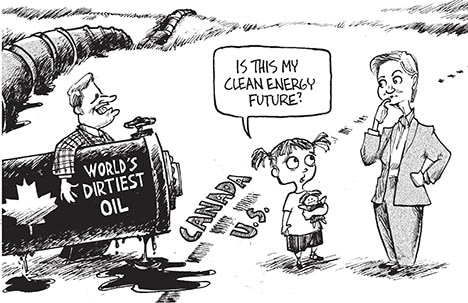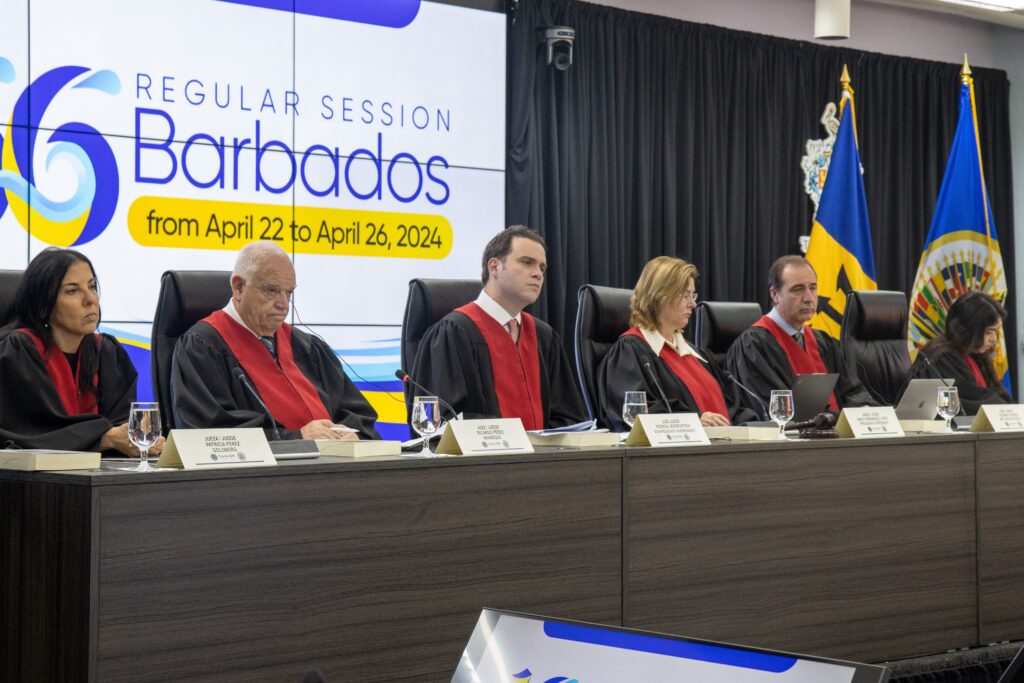Three watchdog groups filed an appeal today with the U.S. State Department over its refusal to release correspondence between the agency and a former high-ranking presidential campaign staffer for Hillary Clinton. In his role as oil lobbyist, Paul Elliott is seeking Secretary of State Clinton’s approval for the controversial Keystone XL tar sands oil pipeline that would bring 900,000 barrels of tar sands a day over 2,000 miles through Montana, South Dakota, Nebraska, Kansas, Oklahoma and Texas to refineries on the Gulf Coast.
The coalition, including Friends of the Earth, the Center for International Environmental Law, and Corporate Ethics International submitted a FOIA request in December [PDF] targeted at Elliott, now lead lobbyist for TransCanada, the company aiming to build the pipeline. The request was rejected by the State Department, and Marcie Keever, legal director for Friends of the Earth, believes that the State Department did not have legitimate legal grounds to do so.
For the groups, the failure of the State Department to comply with its responsibility under the Freedom of Information Act is worrying, and further calls into question Clinton’s capacity to remain impartial on the pipeline decision.
“By refusing to disclose any documents, we contend that the State Department is violating the Freedom of Information Act,” said Keever. “We are hopeful that with this appeal the State Department will release communications between the oil lobbyist and Secretary Clinton and her staffers. If the agency doesn’t, we will take it to court if necessary.”
The State Department’s rejection of the groups’ FOIA request was criticized by independent FOIA experts and, unless overturned, threatens to force the issue into the courts.
Damon Moglen of Friends of the Earth argues that “The State Department is making a mockery of President Obama’s pledges to end the influence of lobbyists and improve transparency in Washington. “President Obama’s State of the Union iterated our right “to know when your elected officials are meeting with lobbyists,” yet in this case, Obama’s goal and the glaring reality of the situation seem to be at odds.
TransCanada also faces heavy criticism for manipulation of landowners along the pipeline’s proposed route. In South Dakota, for example, TransCanada has filed more than a dozen lawsuits to condemn land along the pipeline’s proposed route, even though the company has not received the federal permit required for construction. In Oklahoma, a family is suing TransCanada to defend its property, claiming that the company’s attempt to use eminent domain is unlawful.
The mounting outrage from landowners and local resistance to the pipeline clearly demonstrates that the public has not received adequate consultation on the pipeline. For people along the pipe’s path, this is more than a simple approval, it’s a question of public health and environmental safety.
In the coming weeks, Secretary Clinton is expected to decide whether to fast-track a final recommendation on the project (and she already publicly said she was “inclined” to do so), or order a Supplemental Environmental Impact Statement, which would facilitate a more rigorous review and provide more opportunity for public input.
These groups feel that, for the integrity of the process, and for the health and safety of communities, a supplemental EIS should be mandated.
What will be the fate of this ill-fated pipeline? To learn more information about the Keystone XL pipeline, head over to the Friends of the Earth website.
Subscribe to our newsletter
Stay up to date with DeSmog news and alerts






